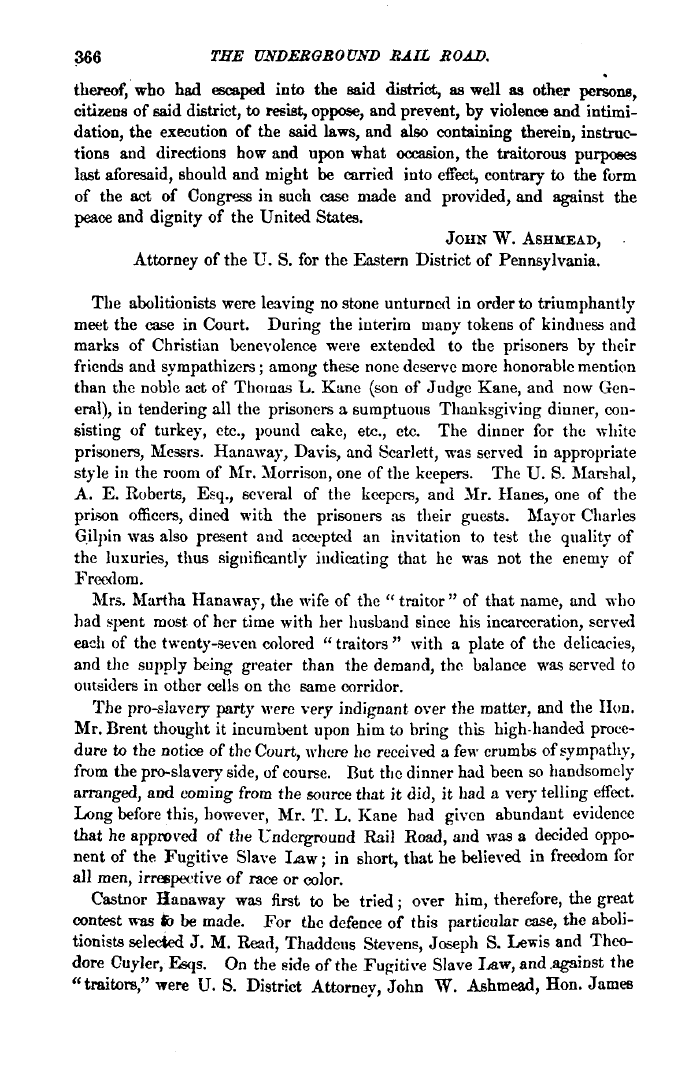 |
||||
 |
||||
| 366 THE UNDERGROUND RAIL ROAD. thereof, who had escaped into the said district, as well as other persons, citizens of said district, to resist, oppose, and prevent, by violence and intimidation, the execution of the said laws, and also containing therein, instructions and directions how and upon what occasion, the traitorous purposes last aforesaid, should and might be carried into effect, contrary to the form of the act of Congress in such case made and provided, and against the peace and dignity of the United States. JOHN "W. ASHMEAD, Attorney of the U. S. for the Eastern District of Pennsylvania. The abolitionists were leaving no stone unturned in order to triumphantly meet the case in Court. During the interim many tokens of kindness and marks of Christian benevolence were extended to the prisoners by their friends and sympathizers; among these none deserve more honorable mention than the noble act of Thomas L. Ka.no (son of Judge Kane, and now General), in tendering all the prisoners a sumptuous Thanksgiving dinner, consisting of turkey, etc., pound cake, etc., etc. The dinner for the white prisoners, Messrs. Hanaway, Davis, and Scarlett, was served in appropriate style in the room of Mr. Morrison, one of the keepers. The U. S. Marshal, A. E. Roberts, Esq., several of the keepers, and Mr. Hanes, one of the prison officers, dined with the prisoners as their guests. Mayor Charles G.ilpin was also present and accepted an invitation to test the quality of the luxuries, thus significantly indicating that he was not the enemy of Freedom. Mrs. Martha Hanaway, the wife of the " traitor " of that name, and who had spent most of her time with her husband since his incarceration, served each of the twenty-seven colored " traitors " with a plate of the delicacies, and the supply being greater than the demand, the balance was served to outsiders in other cells on the same corridor. The pro-slavery part}' were very indignant over the matter, and the Hon. Mr. Brent thought it incumbent upon him to bring this high-handed procedure to the notice of the Court, where lie received a few crumbs of sympathy, from the pro-slavery side, of course. But the dinner had been so handsomely arranged, and coming from the source that it did, it had a very telling effect. Long before this, however, Mr. T. L. Kane had given abundant evidence that he approved of the Underground Rail Road, and was a decided opponent of the Fugitive Slave Law; in short, that he believed in freedom for all men, irrespective of race or color. Castnor Hanaway was first to be tried; over him, therefore, the great contest was fo be made. For the defence of this particular case, the abolitionists selected J. M. Read, Thaddeiis Stevens, Joseph S. Lewis and Theodore Cuyler, Esqs. On the side of the Fugitive Slave Law, and .against the " traitors," were U. S. District Attorney, John W. Ashmead, Hon. James |